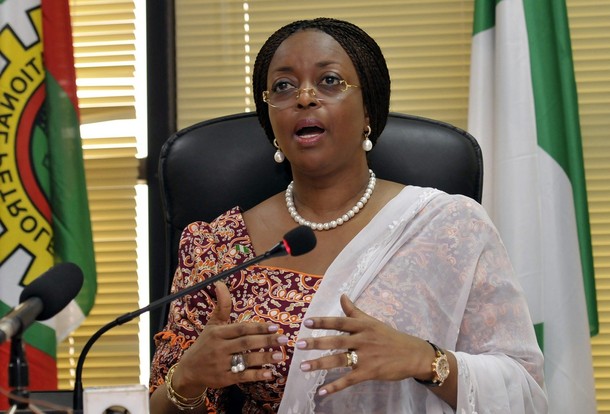- Diezani Alison-Madueke to be Extradited from UK —EFCC
The Economic and Financial Crimes Commission (EFCC) has confirmed that the process for the extraditing former Minister of Petroleum, Mrs Diezani Alison-Madueke from the United Kingdom has begun.
Acting Spokesman of the commission, Mr Tony Orilade, disclosed this in an interview with News Agency of Nigeria (NAN) on Sunday in Abuja.
There have been calls from different quarters for the extradition of the former minister over several allegations of impropriety against her.
According to Orilade, EFCC’s Operations Department has made presentation to the Legal Department to commence the process, and that process has commenced.
He, however, said that the action had to be processed through the office of the Attorney-General of the Federation, explaining that it was not something the commission would commence and conclude on its own.
“It is ongoing. Within the next few weeks, the extent to which we have gone will be made known to the public.
“It is not a fresh case; it is not a fresh petition that is just being looked into; the whole process is a total package.
“This extradition is just an aspect of Diezani’s investigation and commencement of trial,” he said.
In 2017, a Federal High Court in Lagos ordered the final forfeiture of N7.6 billion alleged loot recovered from the former minister to the Federal Government.
Justice Abdulazeez Anka granted an application by the EFCC seeking the final forfeiture of the money to the government.
Granting the application, the judge had said: “I have read the motion on notice seeking the final forfeiture of the sum of N7.6 billion reasonably suspected to be proceeds of unlawful activity.
“I have also gone through the affidavit in support of the application.
“In the circumstances, I am of the view that the application has merit and is hereby granted as prayed. Parties have a right of appeal.”
In October, 2017, the Minister of Justice and Attorney-General of the Federation, Abubakar Malami, had said that Nigeria had no immediate plan to bring Alison -Madueke back home to face trial.
Alison -Madueke, who is being investigated in the UK, had urged the Federal Government to bring her back to the country to face corruption charges against her.
But, Malami said that bringing her back to the country would jeopardise the investigation being carried on her in the UK.
“Steps have been taken by the United Kingdom authorities on issues bothering on corrupt practices involving Nigerians.
“If Nigeria feels strongly that there is need to bring Mrs Diezani Alison -Madueke here to face charges of corruption, government will not hesitate to do that.
“As things stand now, there is no need for that since the UK Government is already investigating her,’’ he had said.
The EFCC spokesman could not, however, say the point at which it became necessary to seek extradition of the former minister.




 Naira4 weeks ago
Naira4 weeks ago


 Naira3 weeks ago
Naira3 weeks ago


 News4 weeks ago
News4 weeks ago
 Travel4 weeks ago
Travel4 weeks ago




 Naira4 weeks ago
Naira4 weeks ago


 Jobs3 weeks ago
Jobs3 weeks ago
 Naira3 weeks ago
Naira3 weeks ago


 Travel3 weeks ago
Travel3 weeks ago

















